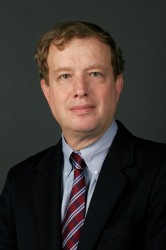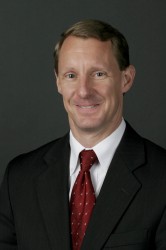President Obama is set to reveal plans this week for an expanded U.S. campaign to defeat Islamic State militants in Iraq and Syria.

Thomas Schwartz, professor of history at Vanderbilt University, says President Obama should “explain the mission with vigor and enthusiasm.”
“There is no reason to be sheepish or half-hearted about the use of force against ISIS militants in Iraq,” Schwartz said. “He should embrace the moment as a defining one – because it speaks highly of his priorities and his foreign policy.”
Even though Obama was elected and re-elected on promises to get and keep America out of Iraq, the evolving situation there calls for a new direction, Schwartz said.
“The United States would be acting in defense of democracy, human rights and humanitarianism against a genuinely evil force,” Schwartz said. “For once, an American president invoking the Nazis and Hitler would not be rhetorical overkill.”

Mike Newton, professor of the practice of law at Vanderbilt Law School, works closely with Kurdish leaders in Iraq. He trained Kurdish judges; wrote the opening statement of the Anfal genocide case; and continues to work on the Kurdish genocide project.
“I think we should be much more aggressive in helping the Kurds in Iraq,” said Newton. “They are our best ally in the region and we need to help them directly. We need to do that through diplomatic leverage in Baghdad and we need to do it right now.”
Newton can comment on international war crimes and atrocities. He is an expert on accountability, transnational justice and conduct of hostilities issues. He is an elected member of the International Institute of Humanitarian Law and the International Bar Association.
Hear Newton explain how lessons learned from the Halabja, Iraq attack could help the persecuted Kurds being attacked in Syria today.
Along with helping to establish the Iraqi Special Tribunal that convicted Saddam Hussein and leading the training in international criminal law for its judges, Newton served in the Office of War Crimes Issues at the U.S. Department of State and was one of two U.S. delegates who negotiated the Elements of Crimes document for the International Criminal Court. He also coordinated the interface between the FBI and the International Criminal Tribunal for the former Yugoslavia and deployed into Kosovo to do forensics fieldwork to support the Milosevic indictment.
At Vanderbilt, Newton developed and teaches the innovative International Law Practice Lab which provides expert assistance to judges and lawyers, governments, and policy-makers around the world.